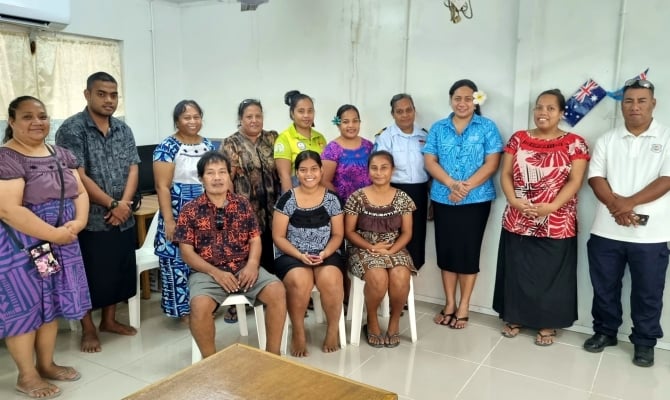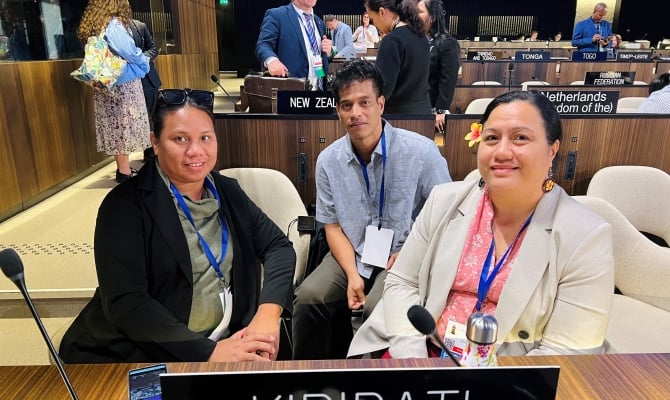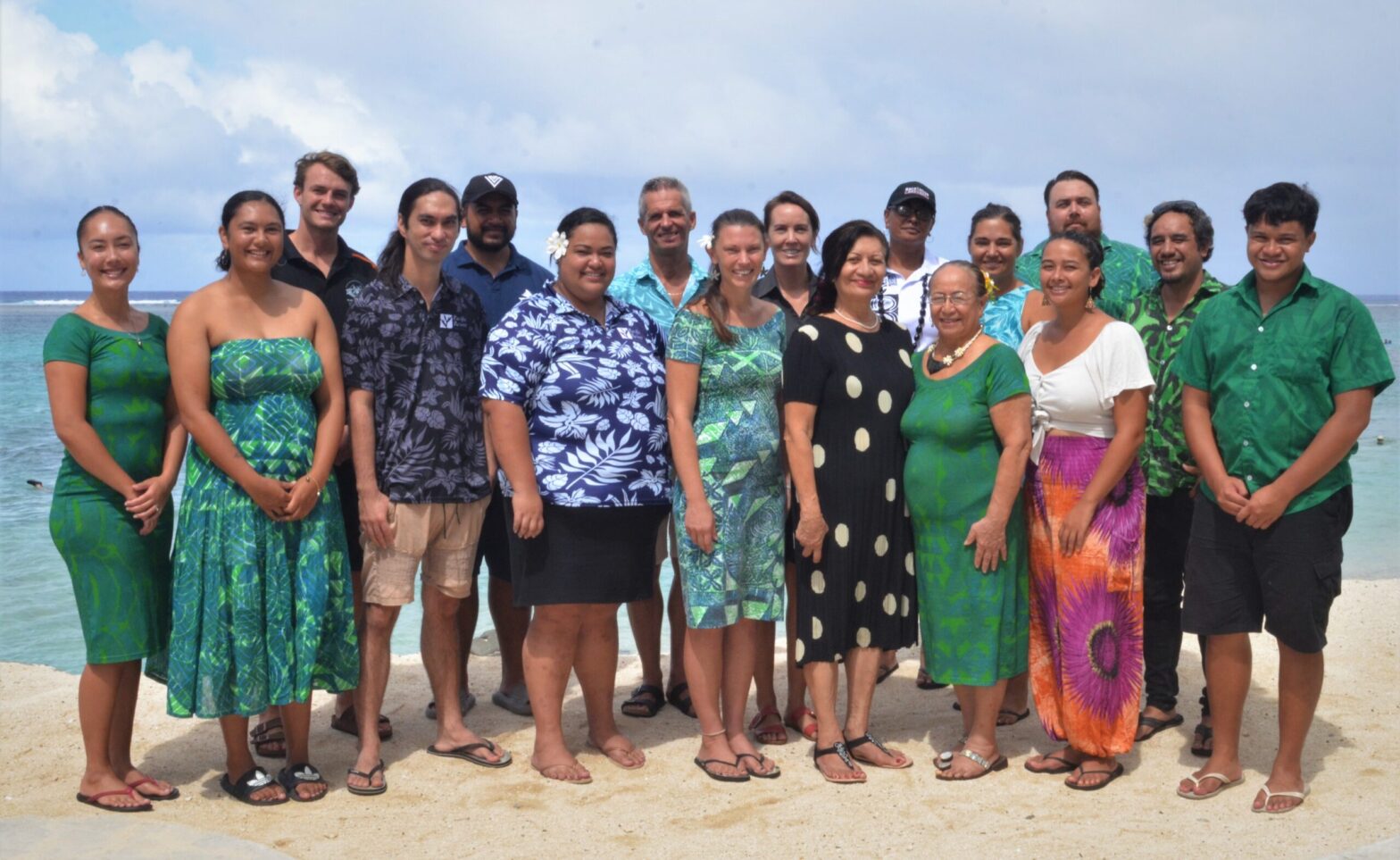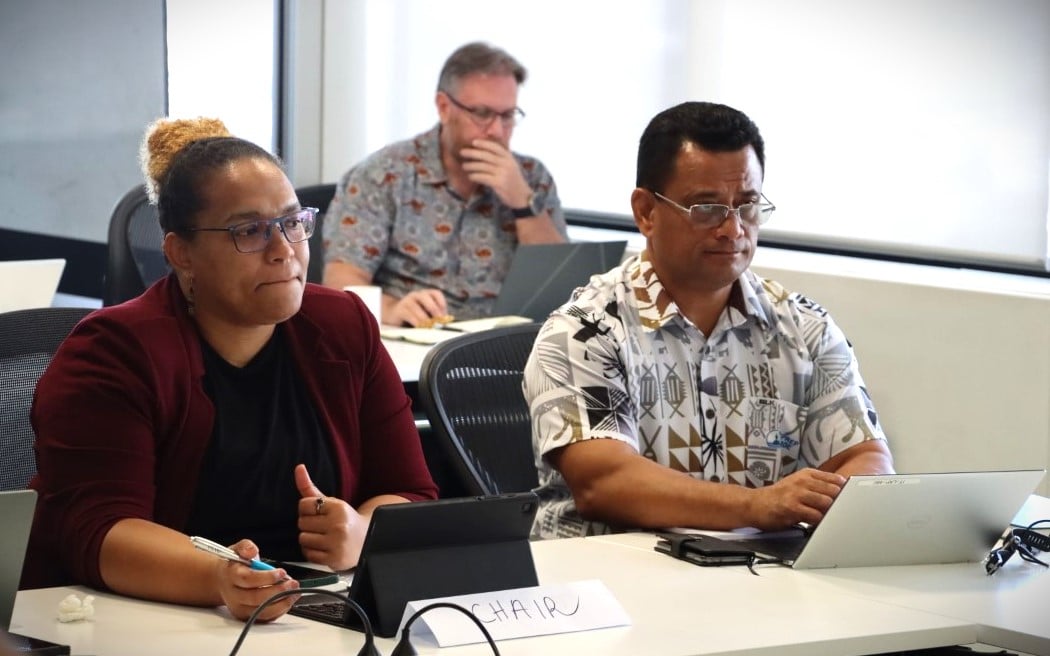In the Pacific Island nation of Kiribati, plastic has been identified as the top waste stream needing attention in the Kiribati Waste Management and Resource Recovery Strategy 2020-2030.
An estimated 13 per cent of the waste stream in Kiribati is comprised of plastic with recent studies indicating a plastic waste generation of 9.7 tonnes every day accumulating in landfills and the Kiribati environment.
This amount is significant for small island developing states like Kiribati with limited resources, lack of technical capacity and minimal treatment options to dispose of such waste other than landfilling.
To help address the very visible single-use plastic waste problem, the Secretariat of the Pacific Regional Environment Programme (SPREP) through the Australian Government funded, Pacific Ocean Litter Project (POLP) and Kiribati’s Ministry of Environment, Land Management and Agricultural Development (MELAD) conducted a national workshop on the POLP pilot project earlier this month in Kiribati.
The workshop brought together a diverse range of stakeholders from government, industry and community representatives to share views on what Kiribati needed to do to address the plastic waste problem.
“Plastic litter is one of the most pressing environmental threats facing Kiribati, especially in South Tarawa and increasingly on Kiritimati Island which are the two main urban centres. However, plastic litter and pollution are gradually encroaching on most of our remote outer islands,” said the Kiribati Director of Environment and Conservation, Nenenteiti Teariki-Ruatu.
National efforts to reduce plastic consumption and pollution include the banning of single-use shopping bags, disposable nappies and ice block plastic bags.
The POLP project will explore the possibility of extending the scope of the ban to include additional single-use plastic items through the development of a new plastics regulation. A technical working group will be established to drive the process, noting the existence of the Plastic Ban Committee and the opportunity to include additional stakeholders including industry and community.
The work on the plastics regulation will be supported by a nationwide education and public awareness campaign.
“The POLP project will benefit the local communities and people of Kiribati by providing access to relevant information and resources on ways to reduce our plastic consumption and local affordable alternatives. We hope this regional project also brings potential opportunities for enhancing plastic repurposing as a potential income-generating activity for the community,” Teariki-Ruatu said.
“We have seen with our own eyes the effects of plastic pollution on our environment, activities on behaviour change are critical and we look forward to supporting the project activities,” said Ministry of Fisheries, Mineral and Resources Development’s, Raitiatia Cati.
This story was originally published at SPREP on 21 March 2024, reposted via PACNEWS.




